- Home
- Philip Pullman
The Amber Spyglass: His Dark Materials Page 23
The Amber Spyglass: His Dark Materials Read online
Page 23
And that time it worked. He found a new world and slid the knife along to make an opening, and a few moments later all of them were standing in what looked like a neat and prosperous farmyard in some northern country like Holland or Denmark, where the stone-flagged yard was swept and clean and a row of stable doors stood open. The sun shone down through a hazy sky, and there was the smell of burning in the air, as well as something less pleasant. There was no sound of human life, though a loud buzzing, so active and vigorous that it sounded like a machine, came from the stables.
Lyra went and looked, and came back at once, looking pale.
“There’s four”—she gulped, hand to her throat, and recovered—“four dead horses in there. And millions of flies . . .”
“Look,” said Will, swallowing, “or maybe better not.”
He was pointing at the raspberry canes that edged the kitchen garden. He’d just seen a man’s legs, one with a shoe on and one without, protruding from the thickest part of the bushes.
Lyra didn’t want to look, but Will went to see if the man was still alive and needed help. He came back shaking his head, looking uneasy.
The two spies were already at the farmhouse door, which was ajar.
Tialys darted back and said, “It smells sweeter in there,” and then he flew back over the threshold while Salmakia scouted further around the outbuildings.
Will followed the Chevalier. He found himself in a big square kitchen, an old-fashioned place with white china on a wooden dresser, and a scrubbed pine table, and a hearth where a black kettle stood cold. Next door there was a pantry, with two shelves full of apples that filled the whole room with fragrance. The silence was oppressive.
Lyra said quietly, “Will, is this the world of the dead?”
The same thought had occurred to him. But he said, “No, I don’t think so. It’s one we haven’t been in before. Look, we’ll load up with as much as we can carry. There’s sort of rye bread, that’ll be good—it’s light—and here’s some cheese . . .”
When they had taken what they could carry, Will dropped a gold coin into the drawer in the big pine table.
“Well?” said Lyra, seeing Tialys raise his eyebrows. “You should always pay for what you take.”
At that moment Salmakia came in through the back door, landing her dragonfly on the table in a shimmer of electric blue.
“There are men coming,” she said, “on foot, with weapons. They’re only a few minutes’ walk away. And there is a village burning beyond the fields.”
And as she spoke, they could hear the sound of boots on gravel, and a voice issuing orders, and the jingle of metal.
“Then we should go,” said Will.
He felt in the air with the knifepoint. And at once he was aware of a new kind of sensation. The blade seemed to be sliding along a very smooth surface, like a mirror, and then it sank through slowly until he was able to cut. But it was resistant, like heavy cloth, and when he made an opening, he blinked with surprise and alarm: because the world he was opening into was the same in every detail as the one they were already standing in.
“What’s happening?” said Lyra.
The spies were looking through, puzzled. But it was more than puzzlement they felt. Just as the air had resisted the knife, so something in this opening resisted their going through. Will had to push against something invisible and then pull Lyra after him, and the Gallivespians could hardly make any headway at all. They had to perch the dragonflies on the children’s hands, and even then it was like pulling them against a pressure in the air; their filmy wings bent and twisted, and the little riders had to stroke their mounts’ heads and whisper to calm their fears.
But after a few seconds of struggle, they were all through, and Will found the edge of the window (though it was impossible to see) and closed it, shutting the sound of the soldiers away in their own world.
“Will,” said Lyra, and he turned to see that there was another figure in the kitchen with them.
His heart jolted. It was the man he’d seen not ten minutes before, stark dead in the bushes with his throat cut.
He was middle-aged, lean, with the look of a man who spent most of the time in the open air. But now he was looking almost crazed, or paralyzed, with shock. His eyes were so wide that the white showed all around the iris, and he was clutching the edge of the table with a trembling hand. His throat, Will was glad to see, was intact.
He opened his mouth to speak, but no words came out. All he could do was point at Will and Lyra.
Lyra said, “Excuse us for being in your house, but we had to escape from the men who were coming. I’m sorry if we startled you. I’m Lyra, and this is Will, and these are our friends, the Chevalier Tialys and the Lady Salmakia. Could you tell us your name and where we are?”
This normal-sounding request seemed to bring the man to his senses, and a shudder passed over him, as if he were waking from a dream.
“I’m dead,” he said. “I’m lying out there, dead. I know I am. You ain’t dead. What’s happening? God help me, they cut my throat. What’s happening?”
Lyra stepped closer to Will when the man said I’m dead, and Pantalaimon fled to her breast as a mouse. As for the Gallivespians, they were trying to control their dragonflies, because the great insects seemed to have an aversion for the man and darted here and there in the kitchen, looking for a way out.
But the man didn’t notice them. He was still trying to understand what had happened.
“Are you a ghost?” Will said cautiously.
The man reached out his hand, and Will tried to take it, but his fingers closed on the air. A tingle of cold was all he felt.
When he saw it happen, the man looked at his own hand, appalled. The numbness was beginning to wear off, and he could feel the pity of his state.
“Truly,” he said, “I am dead . . . I’m dead, and I’m going to Hell . . .”
“Hush,” said Lyra, “we’ll go together. What’s your name?”
“Dirk Jansen I was,” he said, “but already I . . . I don’t know what to do . . . Don’t know where to go . . .”
Will opened the door. The barnyard looked the same, the kitchen garden was unchanged, the same hazy sun shone down. And there was the man’s body, untouched.
A little groan broke from Dirk Jansen’s throat, as if there were no denying it anymore. The dragonflies darted out of the door and skimmed over the ground and then shot up high, faster than birds. The man was looking around helplessly, raising his hands, lowering them again, uttering little cries.
“I can’t stay here . . . Can’t stay,” he was saying. “But this ain’t the farm I knew. This is wrong. I got to go . . .”
“Where are you going, Mr. Jansen?” said Lyra.
“Down the road. Dunno. Got to go. Can’t stay here . . .”
Salmakia flew down to perch on Lyra’s hand. The dragonfly’s little claws pricked as the Lady said, “There are people walking from the village—people like this man—all walking in the same direction.”
“Then we’ll go with them,” said Will, and swung his rucksack over his shoulder.
Dirk Jansen was already passing his own body, averting his eyes. He looked almost as if he were drunk, stopping, moving on, wandering to left and right, stumbling over little ruts and stones on the path his living feet had known so well.
Lyra came after Will, and Pantalaimon became a kestrel and flew up as high as he could, making Lyra gasp.
“They’re right,” he said when he came down. “There’s lines of people all coming from the village. Dead people . . .”
And soon they saw them, too: twenty or so men, women, and children, all moving as Dirk Jansen had done, uncertain and shocked. The village was half a mile away, and the people were coming toward them, close together in the middle of the road. When Dirk Jansen saw the other ghosts, he broke into a stumbling run, and they held out their hands to greet him.
“Even if they don’t know where they’re going, they’re all go
ing there together,” Lyra said. “We better just go with them.”
“D’you think they had dæmons in this world?” said Will.
“Can’t tell. If you saw one of ’em in your world, would you know he was a ghost?”
“It’s hard to say. They don’t look normal, exactly . . . There was a man I used to see in my town, and he used to walk about outside the shops always holding the same old plastic bag, and he never spoke to anyone or went inside. And no one ever looked at him. I used to pretend he was a ghost. They look a bit like him. Maybe my world’s full of ghosts and I never knew.”
“I don’t think mine is,” said Lyra doubtfully.
“Anyway, this must be the world of the dead. These people have just been killed—those soldiers must’ve done it—and here they are, and it’s just like the world they were alive in. I thought it’d be a lot different . . .”
“Will, it’s fading,” she said. “Look!”
She was clutching his arm. He stopped and looked around, and she was right. Not long before he had found the window in Oxford and stepped through into the other world of Cittàgazze, there had been an eclipse of the sun, and like millions of others Will had stood outside at midday and watched as the bright daylight faded and dimmed until a sort of eerie twilight covered the houses, the trees, the park. Everything was just as clear as in full daylight, but there was less light to see it by, as if all the strength were draining out of a dying sun.
What was happening now was like that, but odder, because the edges of things were losing their definition as well and becoming blurred.
“It’s not like going blind, even,” said Lyra, frightened, “because it’s not that we can’t see things, it’s like the things themselves are fading . . .”
The color was slowly seeping out of the world. A dim green gray for the bright green of the trees and the grass, a dim sand gray for the vivid yellow of a field of corn, a dim blood gray for the red bricks of a neat farmhouse . . .
The people themselves, closer now, had begun to notice, too, and were pointing and holding one another’s arms for reassurance.
The only bright things in the whole landscape were the brilliant red-and-yellow and electric blue of the dragonflies, and their little riders, and Will and Lyra, and Pantalaimon, who was hovering kestrel-shaped close above.
They were close to the first of the people now, and it was clear: they were all ghosts. Will and Lyra took a step toward each other, but there was nothing to fear, for the ghosts were far more afraid of them and were hanging back, unwilling to approach.
Will called out, “Don’t be afraid. We’re not going to hurt you. Where are you going?”
They looked at the oldest man among them, as if he were their guide.
“We’re going where all the others go,” he said. “Seems as if I know, but I can’t remember learning it. Seems as if it’s along the road. We’ll know it when we get there.”
“Mama,” said a child, “why’s it getting dark in the daytime?”
“Hush, dear, don’t fret,” the mother said. “Can’t make anything better by fretting. We’re dead, I expect.”
“But where are we going?” the child said. “I don’t want to be dead, Mama!”
“We’re going to see Grandpa,” the mother said desperately.
But the child wouldn’t be consoled and wept bitterly. Others in the group looked at the mother with sympathy or annoyance, but there was nothing they could do to help, and they all walked on disconsolately through the fading landscape as the child’s thin cries went on, and on, and on.
The Chevalier Tialys had spoken to Salmakia before skimming ahead, and Will and Lyra watched the dragonfly with eyes greedy for its brightness and vigor as it got smaller and smaller. The Lady flew down and perched her insect on Will’s hand.
“The Chevalier has gone to see what’s ahead,” she said. “We think the landscape is fading because these people are forgetting it. The farther they go away from their homes, the darker it will get.”
“But why d’you think they’re moving?” Lyra said. “If I was a ghost I’d want to stay in the places I knew, not wander along and get lost.”
“They feel unhappy there,” Will said, guessing. “It’s where they’ve just died. They’re afraid of it.”
“No, they’re pulled onward by something,” said the Lady. “Some instinct is drawing them down the road.”
And indeed the ghosts were moving more purposefully now that they were out of sight of their own village. The sky was as dark as if a mighty storm were threatening, but there was none of the electric tension that comes ahead of a storm. The ghosts walked on steadily, and the road ran straight ahead across a landscape that was almost featureless.
From time to time one of them would glance at Will or Lyra, or at the brilliant dragonfly and its rider, as if they were curious. Finally the oldest man said:
“You, you boy and girl. You ain’t dead. You ain’t ghosts. What you coming along here for?”
“We came through by accident,” Lyra told him before Will could speak. “I don’t know how it happened. We were trying to escape from those men, and we just seemed to find ourselves here.”
“How will you know when you’ve got to the place where you’ve got to go?” said Will.
“I expect we’ll be told,” said the ghost confidently. “They’ll separate out the sinners and the righteous, I dare say. It’s no good praying now. It’s too late for that. You should have done that when you were alive. No use now.”
It was quite clear which group he expected to be in, and quite clear, too, that he thought it wouldn’t be a big one. The other ghosts heard him uneasily, but he was all the guidance they had, so they followed without arguing.
And on they walked, trudging in silence under a sky that had finally darkened to a dull iron gray and remained there without getting any darker. The living ones found themselves looking to their left and right, above and below, for anything that was bright or lively or joyful, and they were always disappointed until a little spark appeared ahead and raced toward them through the air. It was the Chevalier, and Salmakia urged her dragonfly ahead to meet him, with a cry of pleasure.
They conferred and sped back to the children.
“There’s a town ahead,” said Tialys. “It looks like a refugee camp, but it’s obviously been there for centuries or more. And I think there’s a sea or a lake beyond it, but that’s covered in mist. I could hear the cries of birds. And there are hundreds of people arriving every minute, from every direction, people like these—ghosts . . .”
The ghosts themselves listened as he spoke, though without much curiosity. They seemed to have settled into a dull trance, and Lyra wanted to shake them, to urge them to struggle and wake up and look around for a way out.
“How are we going to help these people, Will?” she said.
He couldn’t even guess. As they moved on, they could see a movement on the horizon to the left and right, and ahead of them a dirty-colored smoke was rising slowly to add its darkness to the dismal air. The movement was people, or ghosts: in lines or pairs or groups or alone, but all empty-handed, hundreds and thousands of men and women and children were drifting over the plain toward the source of the smoke.
The ground was sloping downward now, and becoming more and more like a rubbish dump. The air was heavy and full of smoke, and of other smells besides: acrid chemicals, decaying vegetable matter, sewage. And the farther down they went, the worse it got. There was not a patch of clean soil in sight, and the only plants growing anywhere were rank weeds and coarse grayish grass.
Ahead of them, above the water, was the mist. It rose like a cliff to merge with the gloomy sky, and from somewhere inside it came those bird cries that Tialys had referred to.
Between the waste heaps and the mist, there lay the first town of the dead.
NINETEEN
LYRA AND HER DEATH
I was angry with my friend:
I told my wrath, my wrath did end.
• WILLIAM BLAKE •
Here and there, fires had been lit among the ruins. The town was a jumble, with no streets, no squares, and no open spaces except where a building had fallen. A few churches or public buildings still stood above the rest, though their roofs were holed or their walls cracked, and in one case a whole portico had crumpled onto its columns. Between the shells of the stone buildings, a mazy clutter of shacks and shanties had been put together out of lengths of roofing timber, beaten-out petrol cans or biscuit tins, torn plastic sheeting, scraps of plywood or hardboard.
The ghosts who had come with them were hurrying toward the town, and from every direction came more of them, so many that they looked like the grains of sand that trickle toward the hole of an hourglass. The ghosts walked straight into the squalid confusion of the town, as if they knew exactly where they were going, and Lyra and Will were about to follow them; but then they were stopped.
A figure stepped out of a patched-up doorway and said, “Wait, wait.”
A dim light was glowing behind him, and it wasn’t easy to make out his features; but they knew he wasn’t a ghost. He was like them, alive. He was a thin man who could have been any age, dressed in a drab and tattered business suit, and he was holding a pencil and a sheaf of papers held together with a clip. The building he’d stepped out of had the look of a customs post on a rarely visited frontier.
“What is this place?” said Will. “And why can’t we go in?”
“You’re not dead,” said the man wearily. “You have to wait in the holding area. Go farther along the road to the left and give these papers to the official at the gate.”
“But excuse me, sir,” said Lyra, “I hope you don’t mind me asking, but how can we have come this far if we en’t dead? Because this is the world of the dead, isn’t it?”
“It’s a suburb of the world of the dead. Sometimes the living come here by mistake, but they have to wait in the holding area before they can go on.”

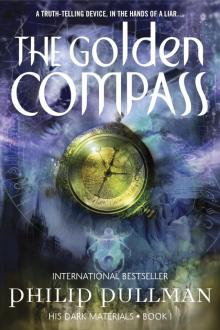 The Golden Compass
The Golden Compass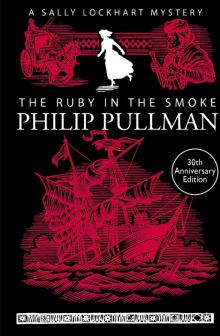 The Ruby in the Smoke
The Ruby in the Smoke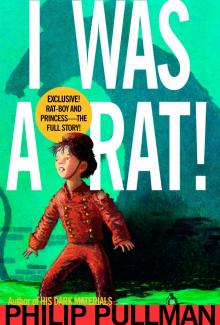 I Was a Rat!
I Was a Rat!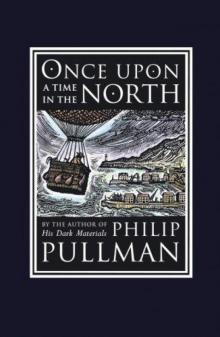 Once Upon a Time in the North
Once Upon a Time in the North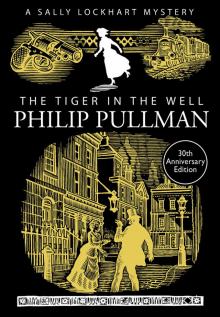 The Tiger in the Well
The Tiger in the Well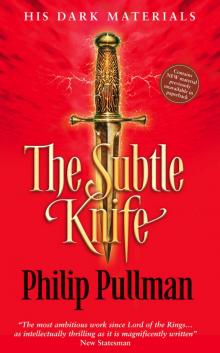 The Subtle Knife
The Subtle Knife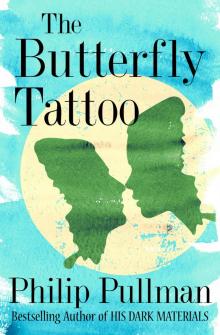 The Butterfly Tattoo
The Butterfly Tattoo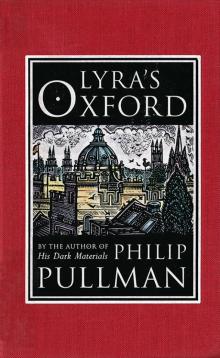 Lyra's Oxford
Lyra's Oxford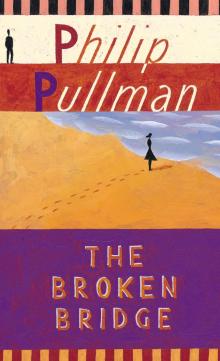 The Broken Bridge
The Broken Bridge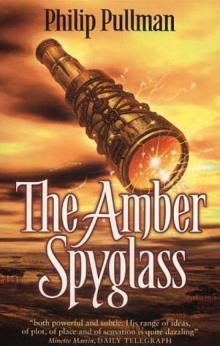 The Amber Spyglass
The Amber Spyglass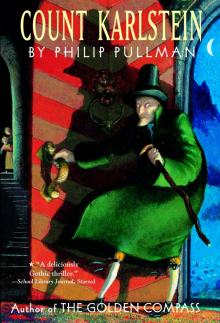 Count Karlstein
Count Karlstein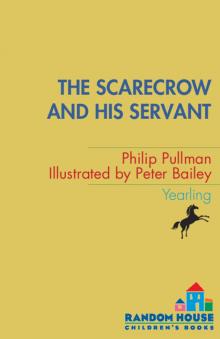 The Scarecrow and His Servant
The Scarecrow and His Servant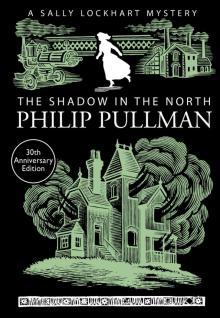 The Shadow in the North
The Shadow in the North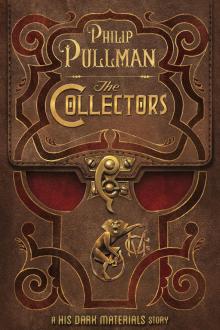 The Collectors
The Collectors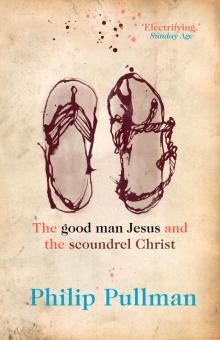 The Good Man Jesus and the Scoundrel Christ
The Good Man Jesus and the Scoundrel Christ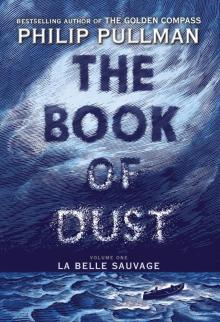 La Belle Sauvage
La Belle Sauvage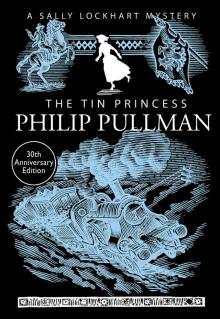 The Tin Princess
The Tin Princess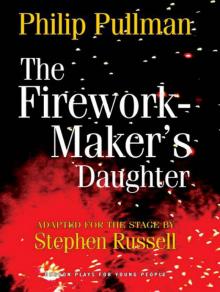 The Firework-Maker's Daughter
The Firework-Maker's Daughter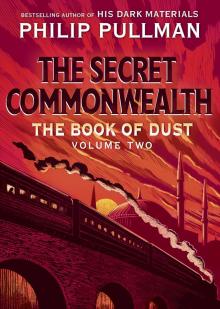 The Book of Dust: The Secret Commonwealth (Book of Dust, Volume 2)
The Book of Dust: The Secret Commonwealth (Book of Dust, Volume 2)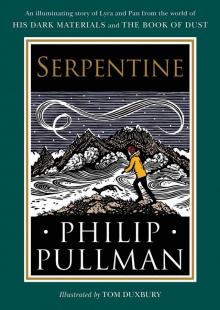 Serpentine
Serpentine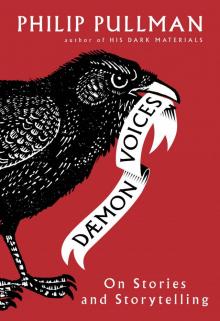 Daemon Voices
Daemon Voices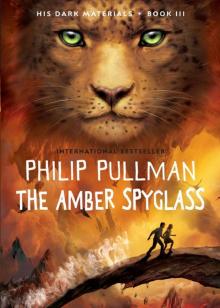 The Amber Spyglass: His Dark Materials
The Amber Spyglass: His Dark Materials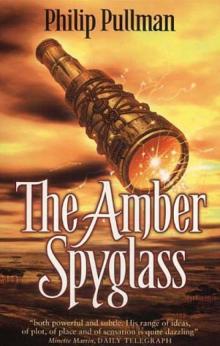 The Amber Spyglass hdm-3
The Amber Spyglass hdm-3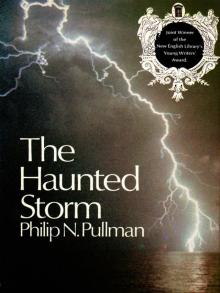 The Haunted Storm
The Haunted Storm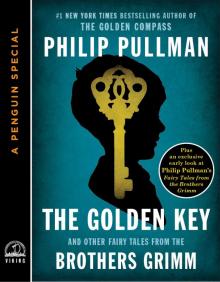 The Golden Key
The Golden Key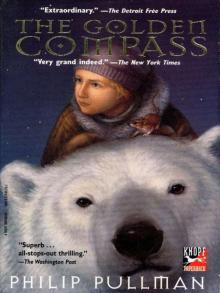 His Dark Materials 01 - The Golden Compass
His Dark Materials 01 - The Golden Compass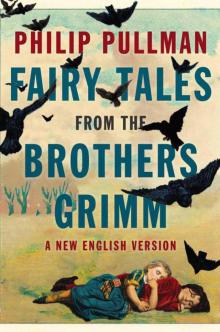 Fairy Tales from the Brothers Grimm: A New English Version
Fairy Tales from the Brothers Grimm: A New English Version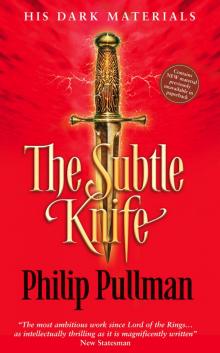 His Dark Materials 02 - The Subtle Knife
His Dark Materials 02 - The Subtle Knife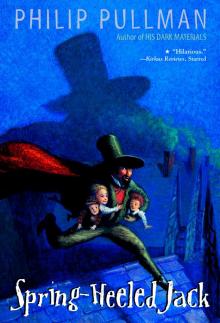 Spring-Heeled Jack
Spring-Heeled Jack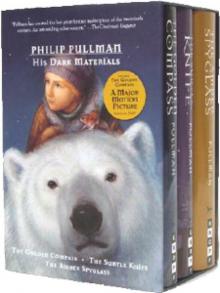 The Golden Compass hdm-1
The Golden Compass hdm-1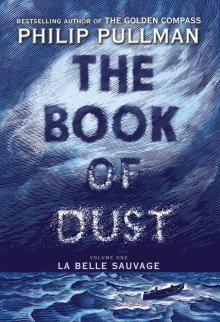 The Book of Dust, Volume 1
The Book of Dust, Volume 1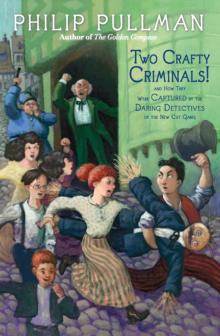 Two Crafty Criminals!
Two Crafty Criminals!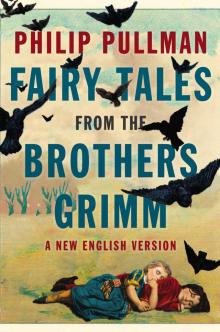 Fairy Tales from the Brothers Grimm
Fairy Tales from the Brothers Grimm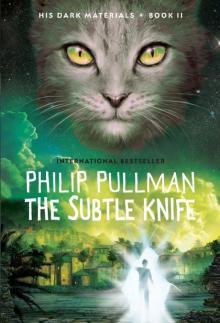 The Subtle Knife: His Dark Materials
The Subtle Knife: His Dark Materials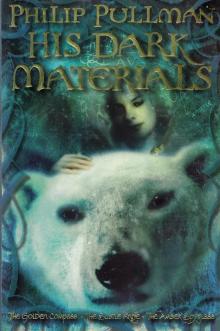 His Dark Materials Omnibus
His Dark Materials Omnibus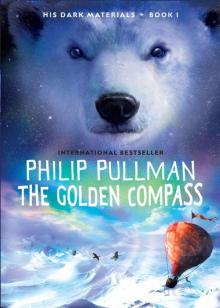 The Golden Compass: His Dark Materials
The Golden Compass: His Dark Materials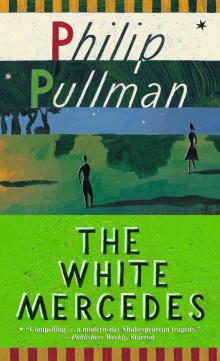 The White Mercedes
The White Mercedes